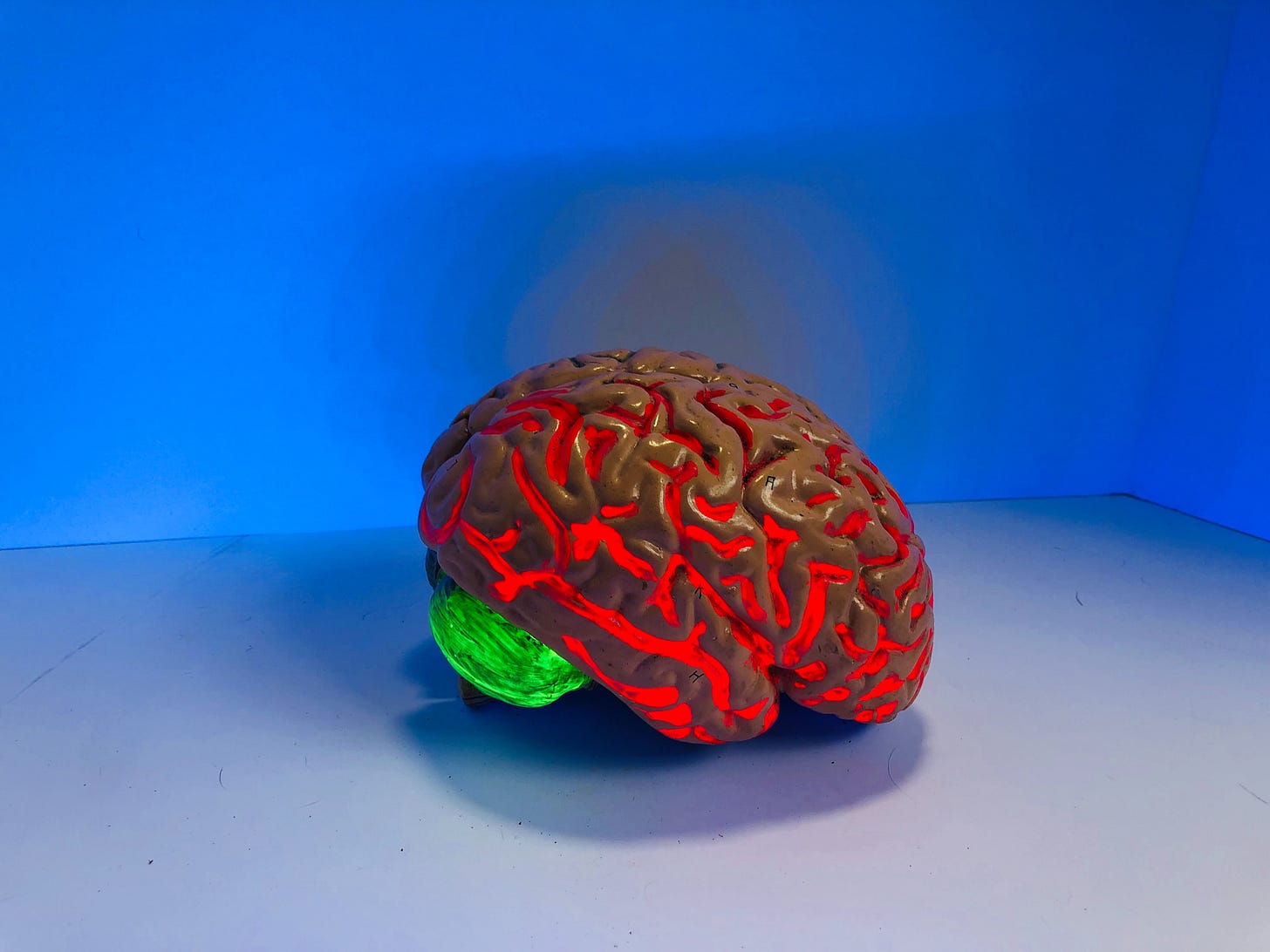The Human Brain is Awesome. It’s Also Very Limited.
The intellect is only one tiny part of our experience of being human
Imagine a culture where people are valued and ranked based on their ability to smell. One in which those with larger noses and more sensitive nostrils, more olfactory receptors, are revered as superior to all others. In this culture, dogs are considered gods, and bloodhounds, with 300 million receptors, are worshipped above all others. Wait, what? you think… But it’s just, well, smell. It’s the olfactory system in hyperdrive—a single type of sense perception— what does that have to do with anything?
The brain, too, is just one organ. Yet as a society, we’ve decided that those whose brains process information in a particular, standardized way are superior. Those whose processing styles differ from the standard are considered ‘disordered.’ This is what our educational system is based on. (Though that’s a step forward from the time when only wealth determined educational opportunities).
The mind is a great tool. It can analyze and parse data; it can strategize; it can discern and sort.
It’s also a very limited tool, and only one tiny part of the entirety of what goes into our experience of being human. The conscious mind—that which we’re aware of knowing—can process something like 40 bits of information per second; the subconscious mind takes in everything we sense and perceive, even when we’re not aware of perceiving—up to 20 million bits of information per second. Trying to process everything through the conscious mind, through logic, is not only exhausting, it’s inefficient.
I’ve long felt that intuition is logic of the subconscious. Like a supercomputer, the subconscious analyzes all the different pieces of information it takes in, and then it offers up its results in the form of “knowing without knowing how we know.” Think about pheromones—those below-the-radar scents that help us pair with partners whose immune systems complement ours, so that our (theoretical) offspring will have the strongest chance of survival. We may love the scent of our partner’s t-shirt because it reminds us of them, yet pheromones are embedded, undetectably, in that scent. And it has nothing to do with the intellect.
Creativity, too, bubbles up from the subconscious. Creativity (and intuition) are as soft as whispers, while the mind is a jackhammer.
Discernment is a tricky one. Of course, we need to learn discernment, to keep ourselves safe. As a culture, though, we’re taught to go beyond discernment to evaluate and judge situations and people; this, in turn, leads to neural wiring that directly goes against compassion and acceptance. A super-strong neural pathway around making judgments (“One of these things is not like the others…”) can, and often does, lead to Othering, seeing people as less than we are. Starting in very early childhood, this can lead to bullying, hostility… an “us vs. Them” attitude.
That’s why it’s important to also learn to observe our thoughts, to question where the thoughts come from, and whether they’re true.
Imagine how different the world would be if we also taught children to consider the quality of a person’s heart, and to appreciate those whose minds work in a different way, rather than standardizing and praising the concept of what we consider a “correct” brain. Intellect, without heart, is bankrupt. On the other hand, intellect in service to the heart can help heal the planet as well as millions of people. The challenge is learning how to do that.




